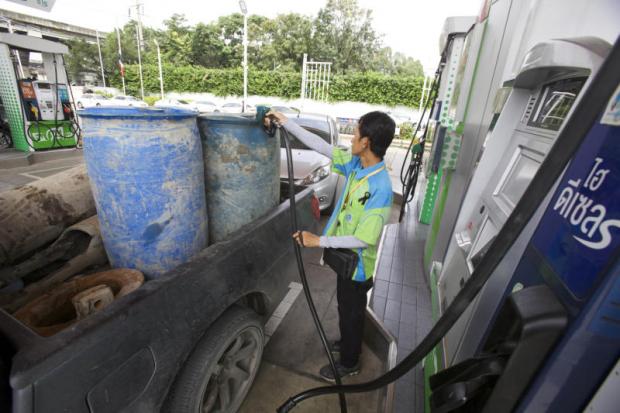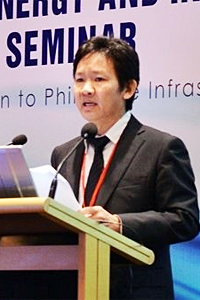
Energy has been heavily subsidised across the globe. Energy subsidies, however, have exerted an extensive economic burden on many countries, particularly on developing economies. Removing the subsidies can bring about economic, social and environmental benefits in the long term, but rising costs of living in the short term. Therefore, policies that safeguard the poor and those depending on energy for living will be needed.
In Southeast Asia alone, fossil fuel subsidies amounted to US$51 billion (1.77 trillion baht) in 2012, according to an estimate of the Economic Research Institute for Asean and East Asia (ERIA) and the International Energy Agency. Fossil fuel subsidies encourage wasteful energy use and burden government budgets. They also defer investment in energy infrastructure and efficient technology, and undermine renewable energy undertakings.
While some countries of the Association of Southeast Asian Nations (Asean) along with India, and China have acted to remove the subsidies, governments must be cautious since removing the subsidies can often be politically sensitive.
On one hand, energy subsidies incentivise consumption and can result in increased energy demand. Conversely, when the subsidies are inefficient, they can lead to fiscal pressure on governments, harmful emissions of greenhouse gases, and be a hindrance to sustainable green growth.
Reducing fossil fuel subsidies can encourage more energy efficient consumption, have positive impacts on international energy prices and energy security, and make renewable energy and technologies more competitive. The environment and society should also benefit from reductions in local pollution and greenhouse gas emissions.
To support the Asean and East Asian Summit countries in carrying out sound energy policy reform, the ERIA, in cooperation with energy research institutes from the East Asia region, has undertaken a study entitled "Energy Subsidies Removal in the East Asia Summit Region" at a time when countries such as Malaysia, Indonesia, Thailand, China and India, are embarking on energy reforms by removing their energy subsidies.
The study comes up with key findings that suggest potential economic benefits of removing the energy subsidies.
For example, Malaysia's removal of either government-funded petroleum or gas subsidy or both would improve economic efficiency and increase the country's real gross domestic product (GDP) by almost 1% over the short term. The immediate impact would be a great reduction in the budget deficit.
For Thailand, the removal of the government's fossil fuel subsidies, with money saved from the subsidies allocated to households and government budgets, is projected to have a negligent impact on the country's GDP in the short term. Hence, policymakers do not need to be concerned about possible negative effects when deciding whether to implement the energy subsidy reform.
In India's case, the government wants to remove subsidies for liquefied petroleum gas (LPG), used as the primary cooking fuel by urban and rural households as well as commercial establishments. The LPG subsidy seems to have benefited the rich more than the poor as most of the LPG goes to urban dwellers (who receive a 69% share of the subsidy). The study's findings suggest that removing the LPG subsidy would not significantly affect economic growth and therefore the government should consider this option.
In China, total energy subsidies in 2010 accounted for 4.7% of GDP. The coal subsidy was the highest, accounting for 1.97% of total GDP, followed by electricity subsidy which accounted for 0.73% of total GDP. The study suggests the removal of energy subsidies in China's iron and steel industries. However, this will will induce costs, and thus require technological innovation for higher energy efficiency through aggressive policy support. Subsidy removal could correct negative environmental externalities and improve social welfare in the country.
However, removal of energy subsidies will induce costs at all levels, and households will be worse off in the short term as a result of higher prices. Therefore, carefully crafted compensating policies are needed.
Leaders and policymakers in the region may see energy subsidy reforms as a challenging task as they will bring about benefits in the long term, but negative impacts on the economy and society in the short term. Therefore, they can consider a number of these recommendations.
First of all, subsidy reforms need to be well-designed to safeguard the poor and those those who basically need the energy for their living -- cooking, lighting and transportation. This is because reforms will affect a basket of consumption, especially the inflation of commodity prices that are related to the transportation cost associated with the production of commodities, products and services. Therefore, programmes such as well targeted fund transfers to the poor or energy-consumption rations should be considered.
The Malaysian government, for example, has prepared to safeguard the poor, but it needs to keep monitoring how the subsidies' funds reach the intended beneficiaries and to recommend corrective actions that may be required during the course of the programme implementation.
Another important point is that governments will need to publicise its cash transfers to support the poor during the gradual removal of energy subsidies. Transparency will gather public support in the reform process.
Public campaigns and education outreach on energy subsidies' removal will be needed to address lingering doubts on whether energy subsidies affect welfare, discourage investment, reduce competition, and obstruct Asean's goal of achieving higher income.
In addition to the energy subsidy reform, the governments of the Asean countries, India and China have carried out other reforms to promote energy efficiency and energy security through increasing the renewable energy share. They also initiated other reforms to achieve the right mix of power generation, including the option of using nuclear energy in the future.
Meaningful reform, therefore, needs such a holistic view of various energy issues.
Han Phoumin is Energy Economist of the Economic Research Institute for Asean and East Asia (ERIA).
